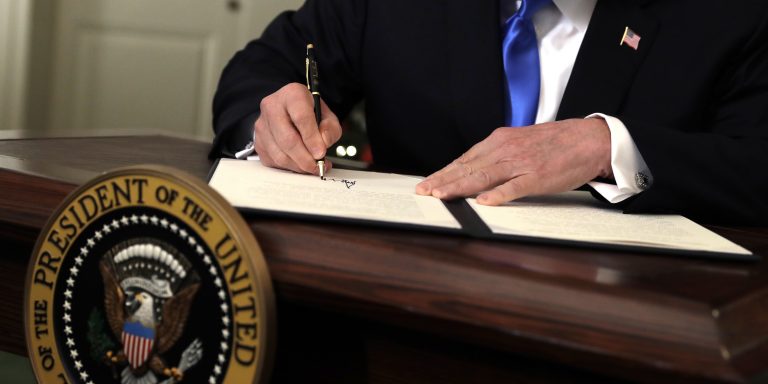INTELBRIEF
December 7, 2017
TSC IntelBrief: The U.S. Recognizes Jerusalem as Israel’s Capital

• On December 6, President Trump announced that the United States was formally recognizing Jerusalem as Israel’s capital
• The U.S. is now the only major country that has made that declaration, pitting Washington against the European Union, the United Nations, and close partners such as Jordan
• President Trump did not specify ‘west Jerusalem’ in his remarks, simply saying ‘Jerusalem is the capital of Israel,’ with specific boundaries—in theory—to be worked out later.
• Iran will likely seize on this and seek to play a larger role in the conflict.
Of all the difficult issues to be resolved in the seven decades-long Israeli-Palestinian conflict, the status of Jerusalem is among the most combustible. Israel took control of east Jerusalem, along with the West Bank, Golan Heights, Gaza and the Sinai, after the 1967 war. The importance of the city to Muslims, Jews, and Christians cannot be overstated and has been a frequent source of conflict. As both Israelis and Palestinians consider Jerusalem their rightful capital, every major peace initiative has left the city’s final status open, befitting its importance and the need to not act unilaterally while negotiations are possible. While Israel formally annexed east Jerusalem, home to the city’s Palestinian community, the move was not recognized by the international community.
For decades, it has been U.S. policy, through both Republican and Democratic administrations, that Jerusalem’s final status must be resolved by an agreement worked out between Israel and the Palestinians. The lack of progress in resolving the overall conflict, and Jerusalem’s critical importance to any possible resolution, kept nearly every nation in the world from recognizing Jerusalem as Israel’s capital and locating their embassy there. On December 6, that changed, as the United States formally recognized Jerusalem as Israel’s capital, a symbolic step with major real-life consequences.
In making the announcement, President Donald Trump rightfully pointed out the lack of any recent progress in the long-running Israeli-Palestinian peace process, and called the move simply ‘a recognition of reality.’ Regardless, peace talks remain the best option to lowering tensions in a very tense and active conflict. Spikes of violence directly connected to the Israeli-Palestinian issue have been blunted, in no small measure, by the prospect of talking instead of fighting. The peace process, however flawed, provided some hope for a peaceful resolution. Now that hope, however distant, has been made even more so, by the President’s unilateral decision.
In his announcement, President Trump repeatedly stated that he still wanted peace between Israelis and Palestinians. However, a much-publicized peace effort led by his son-in-law and Senior Advisor, Jared Kushner, is still months away from disclosing details of a plan. President Trump also said he was both fulfilling a campaign promise, and simply adhering to a 1995 law that requires the U.S. to move its embassy from Tel Aviv to Jerusalem. Every president since that law was passed has signed a succession of 6-month waivers keeping the embassy in Tel Aviv, rather than make a unilateral move that could throw the region into turmoil. President Trump said of his predecessors, that ‘some say they lacked courage’ in not making the move he was making, but that the lack of progress in resolving the conflict proved his action was correct. At the end of his remarks however, President Trump signed the waiver without comment, as it will take years to build a new embassy building.
Iran will likely seize upon the issue; while overwhelmingly Shi’a and mostly Persian, the Iranian government since the 1979 revolution has made the ‘liberation’ of Jerusalem more of a priority than many Arab nations. The Palestinian issue was a way for Iran to connect with the mostly Sunni Arab world. Its elite expeditionary al-Quds force, led by Qassim al-Sulaymani literally means ‘Jerusalem Force’. In Gaza, Hamas, might once again find itself drawn into Iran’s orbit, for material and financial support. Hamas leaders will likely see the President’s announcement both as a call to renew its armed struggle and as proof they were right all along not to trust the West when it came to final status agreements. From nearly every standpoint but domestic base politics, the unilateral decision by the President, at this particular time, is a move of no merit.
The announcement did create a rare moment of global unity. From Beijing to the Vatican, Jordan to the European Union, all declared their strong opposition to the President’s unilateral move, while Palestinian Authority President Mahmoud Abbas said the U.S. could no longer be considered a peace broker. Many world leaders had reached out to President Trump when news broke of his decision December 5, urging restraint. Federica Mogherini, the European Union’s High Representative for Foreign Affairs and Security Policy, told reporters ‘a way must be found through negotiations to resolve the status of Jerusalem as a future capital of both states’ and that any action that undermines these efforts ‘must absolutely be avoided.’
Whether the move—which is well in keeping with the Trump Administration’s dismissal of multilateral negotiations—will result in increased violence and unrest in the region and beyond is uncertain. What is certain is that the U.S. again finds itself isolated on a major issue of global importance.
For tailored research and analysis, please contact: info@thesoufancenter.org
.
.